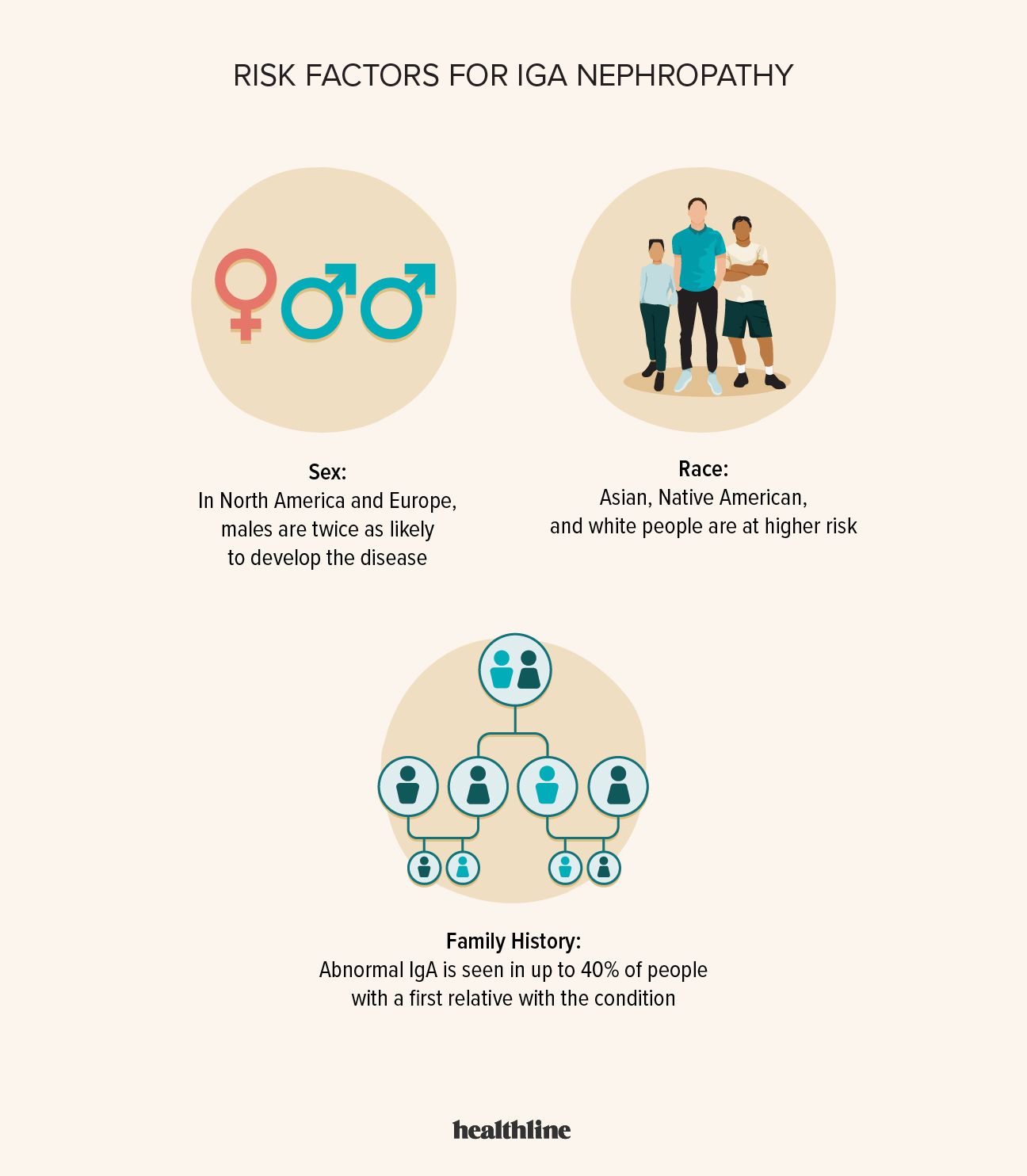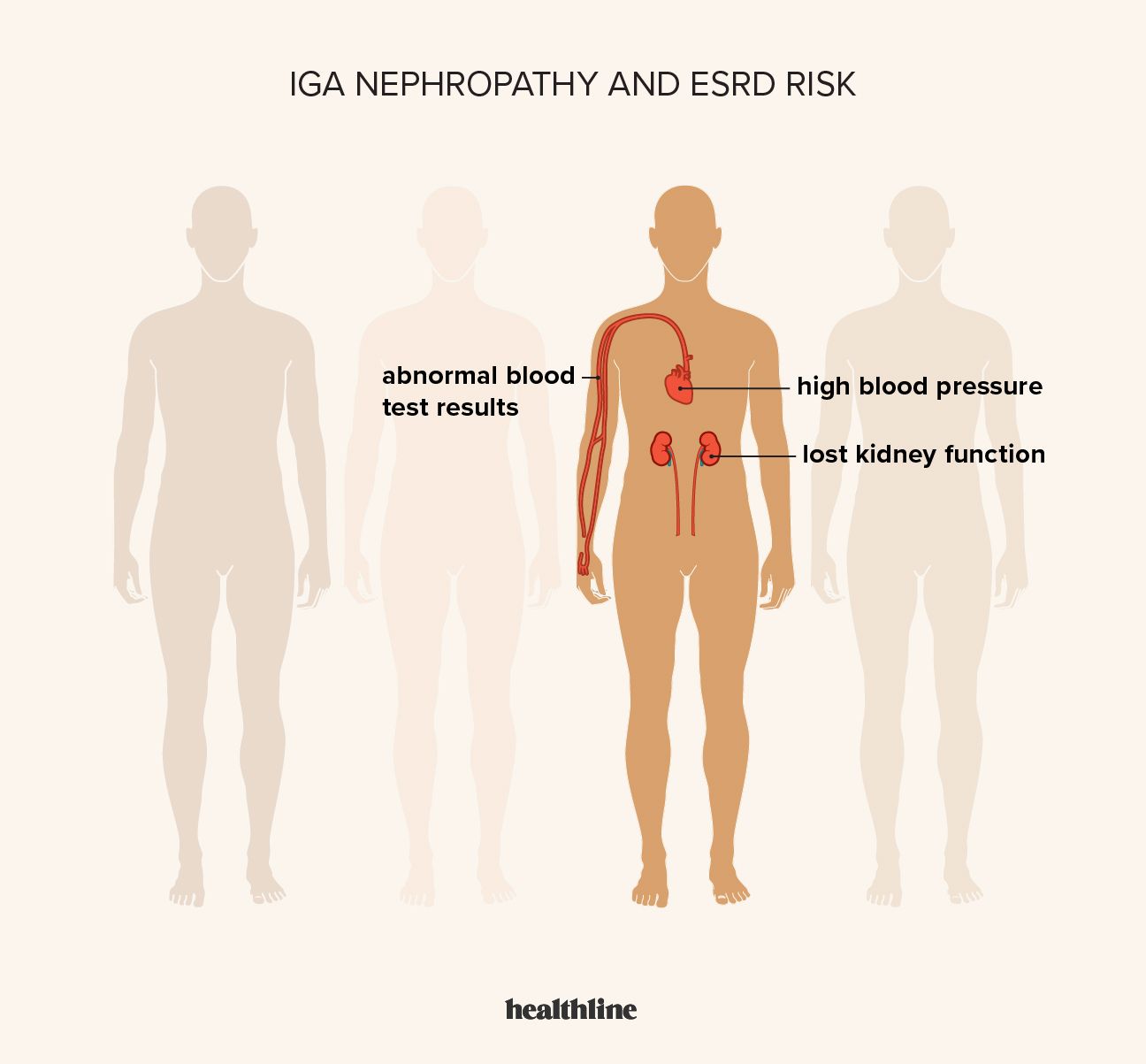IgA nephropathy is a disease that causes the protein immunoglobulin A (IgA) to build up in your kidneys. Factors like sex, race, and family history may increase your chance of developing the condition, but the exact cause isn’t clear.
IgA nephropathy is also called Berger’s disease. IgA normally helps your body fight infections, but when it gets stuck inside your kidneys, it leads to loss of function.
IgA builds up and damages the tiny kidney filters, called glomeruli, that remove waste and extra fluids from the blood. This damage makes the kidneys leak blood and protein into the urine.
The kidneys eventually get so scarred that they can’t filter the blood well enough to keep you healthy. The final stage of kidney disease is called end-stage kidney disease, also called end-stage renal disease (ESRD). At that point, you will need dialysis or a kidney transplant to filter your blood instead of your damaged kidneys.

Certain factors make some people more likely than others to get IgA nephropathy. But just because you have some or all of these risks doesn’t mean you will get this disease.
IgA nephropathy is about
Asians, Native Americans, and white Americans are at higher risk for IgA nephropathy, although this condition can affect people of any race.
Your risk increases if you have a family history of IgA nephropathy. Up to
Risk for end-stage renal disease

According to some research, approximately 1 in 4 people with IgA nephropathy will develop ESRD within 10–20 years of their diagnosis.
Your risk of developing ESRD from IgA nephropathy is higher if:
- your kidney function continues to decline
- your blood test results are abnormal
- you have high blood pressure
Researchers don’t know exactly what causes IgA nephropathy. They believe it results from a faulty immune system response that attacks and damages the kidneys. Here’s what happens:
- IgA, a protein that helps the immune system fight infections, contains less of the sugar galactose than normal.
- Antibodies in the blood see the IgA as foreign and attach to it, forming clumps.
- Those clumps are too big to fit through the kidney filters, so they get stuck inside.
- The trapped IgA inflames and damages the kidneys, causing them to leak blood and protein.
- Over time, the kidneys become too damaged to filter the blood.
IgA nephropathy is a type of kidney disease. It’s most common in younger Asian, Native American, and white men. Having a family history of the disorder also increases your risk.
The condition happens when antibodies attach to IgA, thinking it’s an invading cell. Clumps of IgA and antibodies then get stuck in your kidneys and cause damage.
IgA nephropathy may lead to end-stage kidney disease, which can be life threatening without treatment.

